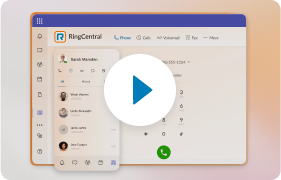CRMs are a useful tool for businesses but many entrepreneurs have not implemented one yet. They consider it to be too much of a burden and can’t afford to spend a great deal of time and resources on it. But in this way, they prevent themselves from capitalizing upon the benefits of a CRM and growing their business.
CRMs are not an option but a necessity today. If you plan to invest in a CRM for your business, you will be overwhelmed by all of the different options available in the market. However, this can be tackled if only you know whether you want an enterprise CRM or a small business CRM. This will help you narrow down the options so that you can make a wise decision.
Entrepreneurs who complain of CRMs being too complex or inefficient don’t realize that these problems crop up, only, because they don’t choose the right CRM for their business.
CRMs aren’t magic bullets that shower you with a cluster of benefits right from implementation. It needs to get seamlessly integrated with the sales, marketing, and customer support processes to start streamlining them. And this can only happen when the right CRM is chosen for the business.
As an entrepreneur, you need to be 100% sure that your chosen CRM aligns seamlessly with your business process. For instance, if you are a small business owner, you may not need the breadth or complexity of an enterprise CRM tool. Similarly, if you own an enterprise, you cannot expect to fulfill all your business needs from a small business CRM solution.
Here are some of the differences between large-scale CRM solutions and CRMs for small to medium businesses that you should be aware of. These will help to determine which option would be effective for your company.
Enterprise CRMs
As evident from the name, these are designed for large-scale organizations and include a plethora of features. Many enterprise CRM solutions integrate customer-facing activities spanning multiple departments and offer strong automation and customization functionalities. However, focused on solving the complexities of big companies, they’re often complicated and more expensive versions of the standard CRM software. This is the reason enterprise CRMs demand a great deal of time and resources in implementation and maintenance. However, once setup, they are incredibly powerful and empower enterprises with their advanced features.
Small Business CRMs
Small business CRMs offer a unidimensional functionality to manage the flow between sales, marketing, and customer support processes. They work as centralized customer data repositories, which can be collectively and collaboratively used by sales, marketing, and support agents. This unifies the whole business into one combined unit and breaks down the concept of watertight departments.
By looking into the CRM, agents get a 360-degree view of customers and identify their position in the sales cycle. They acquire all information pertaining to the lead or contact from the CRM which enables them to understand the context of the conversation, provide a personalized approach and deliver a great customer experience at all stages of the customer lifecycle.
Sales agents benefit the most from small business CRM solutions as they convert the wealth of information and powerful insights into actionable business intelligence and use it to nurture leads and close deals faster.
Small business CRMs are typically less expensive than enterprise CRMs. They are easier to learn and use because unlike their counterparts, they are not stuffed with unnecessary bells and whistles. As a consequence of which, user adoption of small business CRMs is always high, even if they are lacking in some of the more advanced features.
Final Thoughts
Small businesses have fewer employees and a singular flow between departments. A simple CRM solution with basic functionalities works perfectly for this and this is precisely what small business CRMs offer.
Large corporations have a network of departments, maze of customer interactions and more than one channel to generate revenue. A simple CRM is too basic for them. They require enterprise versions of CRM software to simplify the complexity of their processes.
To find out whether you need an enterprise CRM or a small business CRM, analyze your business operations and have a clear set of strategies. Identify the features required in the software which will tell you the type of CRM you should look for.
Updated Jul 03, 2025










